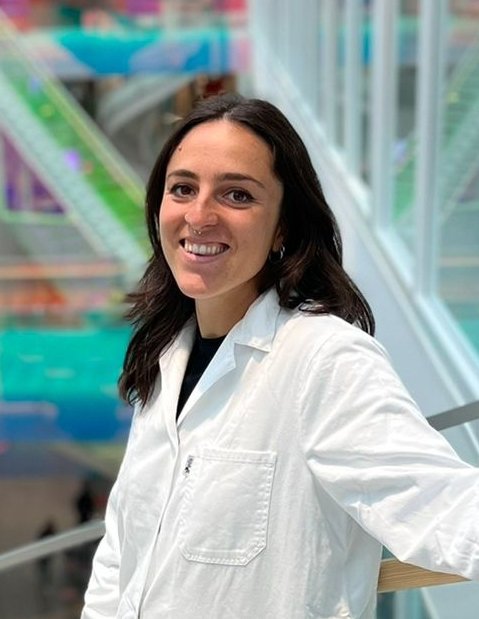Progressive supranuclear palsy (PSP) is a severe and rapidly progressing neurodegenerative disease that affects both motor and cognitive functions. Often misdiagnosed or underdiagnosed due to a lack of specific biomarkers, PSP has posed significant challenges for accurate diagnosis and treatment. However, a new study published in the journal Alzheimer & Dementia: The Journal of the Alzheimer’s Associationoffers promising insights into this debilitating condition.
Researchers at Karolinska Institutet have focused on synaptic density and integrity markers, particularly the synaptic vesicle protein 2A (SV2A), which is widely expressed in the brain. Synaptic loss is a prominent feature of dementia disorders and tauopathies, including PSP. The novel SV2A PET-tracer UCB-J has shown great potential in tracking synaptic loss in PSP patients through in vivo studies. Despite this promise, there has been a substantial knowledge gap regarding the binding mechanisms of UCB-J and the specific nature of synaptic loss in PSP.
In this groundbreaking study, the research team conducted extensive pre-clinical validation and mechanistic studies using postmortem brains from PSP patients and control subjects. The findings are significant as they involve rare PSP brain tissues from both cortical and subcortical regions. The study provides detailed insights into UCB-J binding behavior at the cellular and subcellular levels, employing a multidimensional approach that includes postmortem brain imaging techniques, radioligand binding studies, and in-depth pre-synaptic markers analyses.

Photo: Igor Fontana.
Dr. Miriam Scarpa , Postdoctoral fellow at the Department of Neurobiology, Care Sciences and Society and the first author of the study, emphasized the importance of this research. “Our study is the first to report on UCB-J in PSP patient brains ex vivo. This is a crucial step towards understanding the specific synaptic changes in PSP and improving diagnostic accuracy,” she said.
The study utilized small frozen brain section autoradiography and radioligand binding studies, including saturation, competition, and regional distribution analyses. These methods were complemented by in-depth biochemical analyses using a wide range of synaptic and neurotransmitter-specific markers. The comprehensive approach allowed the researchers to uncover the intricate details of UCB-J binding and its implications for PSP.

Photo: Private.
Dr. Amit Kumar , Research Specialist at the Department of Neurobiology, Care Sciences and Society and the corresponding author of the study further highlighted the translational and clinical value of the study. “Our findings are timely as UCB-J is on its way to being employed in future clinical studies. This research could pave the way for more accurate diagnostic tools and better understanding of PSP,” he added.
The novel insights from this study could set the stage for future diagnostic studies and potentially lead to improved outcomes for patients suffering from PSP. As the research community continues to explore the mechanisms of neurodegenerative diseases, studies like this one are crucial in the quest for better diagnostics and treatments.
The Study is funded by: Karolinska Institutet Development Office, private initiative “Innovative ways to fight Alzheimer’s disease – Leif Lundblad Family and others”, Alzheimer’s Association, USA, the Swedish Foundation for Strategic Research (SSF; RB13-0192), the Swedish Research Council (projects 2017-02965, 2017-06086,2020-01990), the Stockholm County Council -Karolinska Institutet regional agreement on medical training and clinical research (ALF grant), the Swedish Brain Foundation (Hjärnfonden), the Swedish Alzheimer Foundation (Alzheimerfonden), Gamla Tjänarinnor Foundation, Gun and Bertil Stohne’s Foundation, Magnus Bergvall’s Foundation, the Swedish Dementia Foundation (Demensfonden), Stiftelsen Sigurd och Elsa Goljes Minne, the Center for Innovative Medicine (CIMED) Region Stockholm, Åhlén Foundation, Tore Nilsons Stiftelse för Medicinsk Forskning, the Alzheimer Association USA (AARF -21-848395), Loo and Hans Osterman Foundation for Medical Research, Karolinska geriatrics foundation, Gunvor och Josef Anérs stiftelse, and the Recherche sur Alzheimer Foundation (Paris, France).
Publication
“Postmortem validation and mechanistic study of UCB-J in progressive supranuclear palsy patients’ brains” , Miriam Scarpa, Elisavet Vallera, Sira Ausellé-Bosch, Filipa M. Rocha, Buse Esra Mercan, Avishek Roy, Agneta Nordberg, Amit Kumar, Alzheimer & Dementia, online 13 december 2024.








